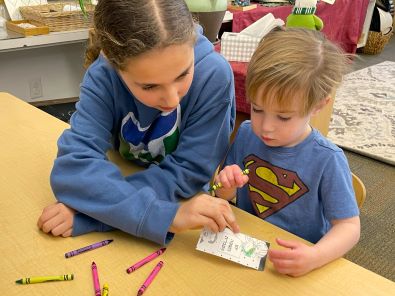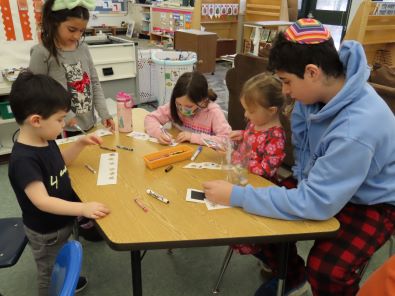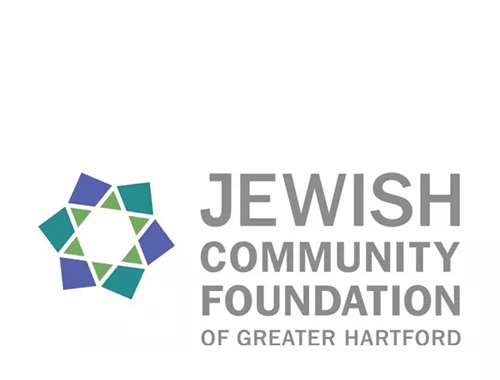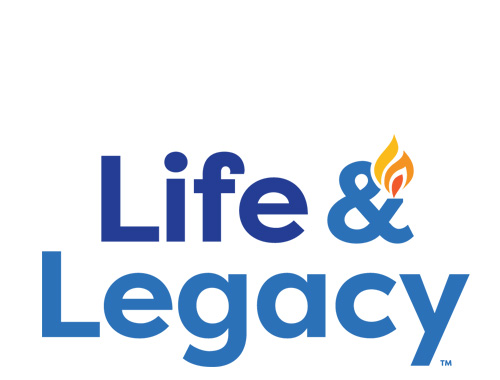Schechter Shavua: February 2, 2024
Glida? Sababa! Yom Ha’Ivrit Celebrates Modern Hebrew
 Schechter students of all ages recently celebrated Yom Ha’Ivrit, a day to commemorate Eliezer Ben Yehuda, who was the driving force behind the revival of the ancient language and its transformation into modern form. When Eliezer Ben Yehuda moved to Israel, he recognized the absence of a unified language, so he invented words that did not appear in the Torah (such as גלידה(glida ; ice cream) and hundreds of others, then assembled those words into a modern dictionary. This short video describes Eliezer Ben Yehuda’s process.
Schechter students of all ages recently celebrated Yom Ha’Ivrit, a day to commemorate Eliezer Ben Yehuda, who was the driving force behind the revival of the ancient language and its transformation into modern form. When Eliezer Ben Yehuda moved to Israel, he recognized the absence of a unified language, so he invented words that did not appear in the Torah (such as גלידה(glida ; ice cream) and hundreds of others, then assembled those words into a modern dictionary. This short video describes Eliezer Ben Yehuda’s process.
Our wonderful seventh and eighth graders of Perah im and Amirimcreated fun and educational activities for the younger students, then went to the classrooms to teach. Some students read stories, others played Hebrew Bingo or memory games. Still others had to guess the Hebrew word in a charade-like game. Everyone created bookmarks and trees decorated with some of the modern Hebrew vocabulary. We love the way our oldest students help younger ones discover and learn!
Faculty and staff wore festive shirts emblazoned with Hebrew slang to celebrate the day. אחלה Achla! (Cool!)
Check out more photos of Yom Ha’Ivrit HERE!
Mixed Age Shevet Groups Celebrate Tu Bishvat
 Schechter’s multi-age Shevet program continued this week with conversations and projects centering around the holiday of Tu Bishvat. The Shevet program provides an opportunity for students of different ages to meet on an ongoing basis to celebrate holidays, share their accomplishments, teach and learn from each other, and work on Growth Mindset together.
Schechter’s multi-age Shevet program continued this week with conversations and projects centering around the holiday of Tu Bishvat. The Shevet program provides an opportunity for students of different ages to meet on an ongoing basis to celebrate holidays, share their accomplishments, teach and learn from each other, and work on Growth Mindset together.
This week, students gathered to talk about trees, the environment, and the benefits and beauty of plant life. They worked together, older students guiding the younger ones, to create their own terrariums that now are growing in our building’s beautiful “greenhouse” (the front hallway). We will continue to water and nurture the plants and monitor their progress.
Click HEREto see more pictures of our Tu Bishvat Shevet collaboration.
Hands-on Science with Ice Cream and Salt Crystals
 Middle School students (gr. 5-8) have been immersed in exciting, hands-on learning that helps them understand changes in matter. Recently, they did phase changing in real time as they discussed different states of matter. When a milk mixture is cooled with snow and rock salt -- by shaking the bags vigorously -- the rock salt lowers the freezing temperature of the snow (aka "supercooling it"), making it possible for the milk mixture to freeze into ice cream. Students were excited to shake their milk concoctions in bags of snow and rock salt as they watched the physical change from liquid to more solid form. Although this process did not turn the milk into a different chemical substance, it certainly made for fun eating!
Middle School students (gr. 5-8) have been immersed in exciting, hands-on learning that helps them understand changes in matter. Recently, they did phase changing in real time as they discussed different states of matter. When a milk mixture is cooled with snow and rock salt -- by shaking the bags vigorously -- the rock salt lowers the freezing temperature of the snow (aka "supercooling it"), making it possible for the milk mixture to freeze into ice cream. Students were excited to shake their milk concoctions in bags of snow and rock salt as they watched the physical change from liquid to more solid form. Although this process did not turn the milk into a different chemical substance, it certainly made for fun eating!
When our curious students then asked teacher Laurie Stanfield about crystals and their role in changing states of matter, she sprung into action! They gathered the necessary ingredients together and made crystal snowflakes and salt crystal gardens, which they are currently observing in progress. For anyone wanting to try this at home, they used "Mrs. Stewart’s Bluing," (which contains Ferric Hexacyanoferrate). As the water from the bluing solution evaporates, two things happen: the blue particles can no longer be supported and the excess salt cannot stay in the solution. The salt crystallization process will take place around the blue particles as nuclei, in much the same way as silver iodide cloud seeding accelerates the formation of rain drops.
Click HEREto see photos of Hands-On Science
Exciting Developments for the Scott Shoham Makerspace/Design Studio
Construction on the new Scott Shoham Makerspace/Design Studio is well underway! We are thrilled to watch it progress into a space where creativity and innovation will thrive. Huge thanks to Guy Neumann and the GN Construction Team for their fantastic work!

Parashat Yitro—Modesty and the Ramp
 In our society, discussions about modesty tend to focus exclusively on girls’ clothing and its impact on others. Boys wrongly learn that modesty isn’t really their concern, and we all focus too much on appearances. This version of modesty can be extremely problematic.
In our society, discussions about modesty tend to focus exclusively on girls’ clothing and its impact on others. Boys wrongly learn that modesty isn’t really their concern, and we all focus too much on appearances. This version of modesty can be extremely problematic.
The Torah’s most important verse on modesty offers an entirely different perspective. In this week’s parashah, following the Ten Commandments, we read: “Do not ascend My altar by stairs, that your nakedness may not be exposed upon it” (Ex. 20:22). At first glance, the concern seems to be that if robed priests climbed steps to the altar, they would reveal their bare legs—so ramps were to be used instead of stairs.
Rashi, however, points out that something else is at stake. The priests wore pants under their robes; exposed skin could not have been the Torah’s concern. Furthermore, even if the priests’ skin was showing, it would be visible only to the stones of the altar! Why would the Torah be concerned about giving a bad impression to stones?
Rashi’s answer: to climb stairs, the priests would have had to take big steps, which might lead to feelings of pride. The ramp forced them to take small steps, which would cultivate a sense of modest humility.
In other words, this verse teaches us that modesty is not primarily concerned with hemlines, tight-fitting material, or the impression we give others. Modesty is a goal for everyone, regardless of gender identity, and its real goal is directed inwards. It helps us to be self-confident but not self-absorbed. The priests knew that they were important—but not all-important. As our students grow from toddlers to eighth graders, I hope that they absorb this version of the value of modesty.
Shabbat shalom,
Rabbi Jonathan Berger
Head of School
Questions for the Shabbat table:
- Rashi believes that the reason the Torah called for a ramp was to help the kohanim/priests stay humble. What would be so bad about arrogant priests?
- These days, dress codes are almost non-existent. What’s good about that? Has anything been lost? What might be a healthy middle ground?
Solomon Schechter Day School
of Greater Hartford
26 Buena Vista Road
West Hartford, CT 06107
© Solomon Schechter Day School of Greater Hartford | Site design Knowles Kreative




